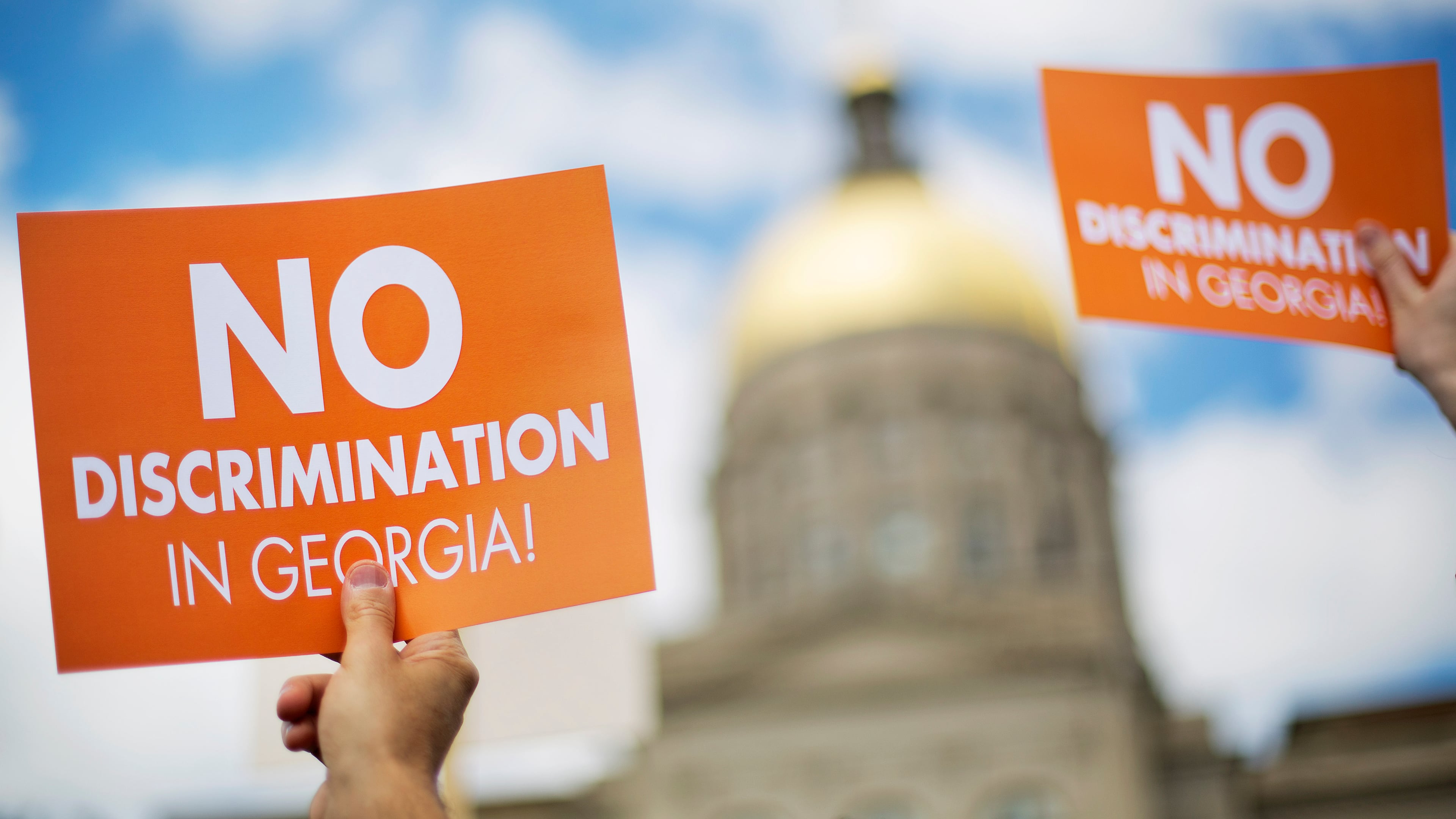Business fears rise amid ‘religious freedom’ debate

Some metro Atlanta business leaders hope their political counterparts at the Capitol can quash a “religious freedom” bill that is prompting talk of driving business from the state.
The head of California-based tech giant Salesforce, Marc Benioff, hinted last week that he may scale back the company’s presence in Georgia if the state passes House Bill 757, which would allow faith-based groups to cite their sincerely held religious beliefs to decline service to couples in relationships with which they disagree.
Academic group Southern Sociological Society, which comes to Atlanta every three years, said Friday it will take its convention and its 1,200 members elsewhere if the legislation becomes law.
How widespread such reactions would be is unclear, but the accompanying publicity would ding the state’s image, often mentioned by Gov. Nathan Deal, for having a top business climate. Some worry it would also stall or reverse the growth in film productions that has pushed Georgia to third place behind New York and Los Angeles. The economic impact to the state’s economy, film leaders say, is about $6.1 billion.
Some, though, say talk of business damage is exaggerated.
“At this point, I’ve heard zero pushback,” said Len Gough, founder and chief executive officer of ProMaker Development Group, which develops infrastructure and business models for film and television in Georgia.
“Production companies come here because it’s a good business decision,” he said. “We’ve created such a good environment, they’ll continue to come.
“Yes, some people will be offended, but that doesn’t keep them from making good business decisions.”
Debate over the measure also comes as metro Atlanta leaders plan a big push next month to promote the area as a tech haven at Austin, Texas’s “South by Southwest Festival.” They fear news of HB 757 could sabotage the effort with millennials who lean liberal on same-sex marriage.
“Our position has always been that our doors are open to everyone,” said Jim Sprouse, executive director of the 300-member Georgia Hotel & Lodging Association.
“Anything that gives the perception that business can discriminate against an individual for any reason is the problem we have with the bill.”
Tim Calkins, a branding expert at the Northwestern University, said some damage may already be done. He said Georgia has brought a lot of attention to itself over the issue and, however it is resolved, some will consider Georgia an intolerant state.
“Just the process can shape a brand,” he said.
Sen. Josh McKoon, R-Columbus, who has a offered a separate religious liberty bill, was critical of Salesforce’s Benioff, who was also outspoken during a similar legislative controversy in Indiana.
“It’s important to note that Salesforce does business in Singapore and India,” he said from the well of the Senate on Friday. “The laws of Singapore and India are that they make homosexuality a crime punishable by imprisonment. It appears he has absolutely no problem doing business in and making money from countries where homosexuality is a crime. So let’s spare us all the political antics around this issue.”
Proponents of the bill say it’s needed to protect citizens and businesses from losing government funding if their beliefs conflict with federal, state and local requirements. Opponents say the legislation would open gay or unmarried couples to discrimination.
As the controversy swelled last week, Gov. Deal said he and House Speaker David Ralston were working with legislators as the bill moved back to the House.
But fallout continued. Representatives of the popular annual Dragon Con festival, which brought more than 70,000 people to the metro area in 2015, said in a Facebook post they are monitoring the bill’s progress closely and that “legislation that hurts one of us, hurts all of us.”
“Unlike some conventions that have their headquarters outside the cities where they operate, Atlanta is the only home Dragon Con has ever had,” the group said. “We have great faith that our state’s leaders and legislators will, eventually, do the right thing for all Georgians.”
Atlanta native and UGA graduate Jon Birdsong, a co-founder and CEO of Atlanta software firm WideAngle, said he opposes the bill, but didn’t think leaving town was the answer.
“The easy thing to do is move. The harder thing is stand up against the perception of discrimination in our state,” he said.
He added he is concerned that attracting talent will be harder if workers think the state is not accepting or open.
Corporate leaders — including representatives of Home Depot, Coca-Cola, Delta Air Lines and UPS — have banded together to oppose the legislation under the Georgia Prospers banner.
Atlanta Hawks co-owner Grant Hill, who joined Georgia Prospers late last week, said he learned sportsmanship, fairness and inclusion as an athlete.
“It is critical now more than ever, that our state supports diversity and inclusion in the workplace,” Hill said.
— Staff writer Matt Kempner contributed to this article.


